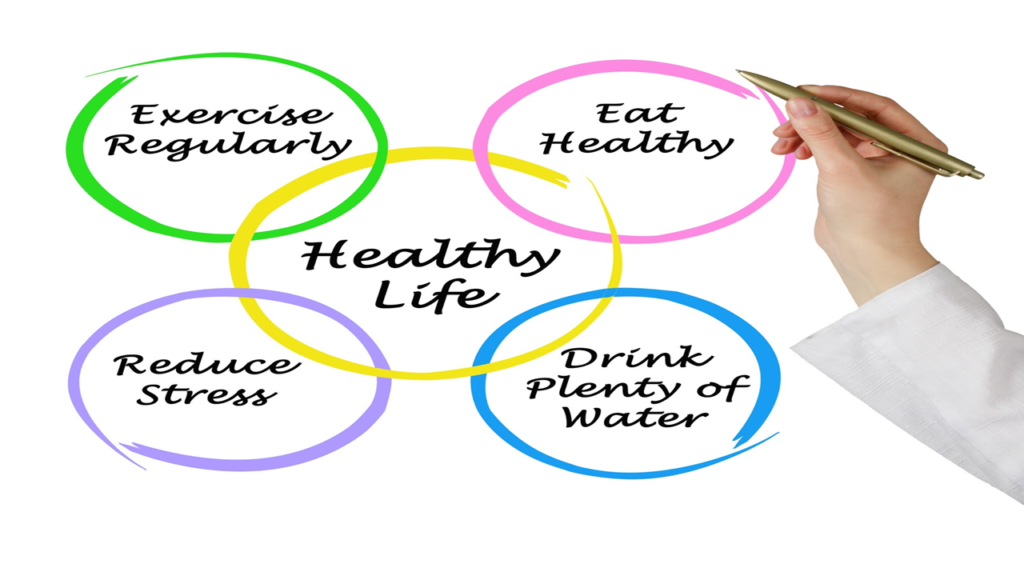In today’s fast-paced world, maintaining our health and well-being can be a challenge. However, adopting a few simple but essential habits can make a significant difference in your overall quality of life. The following are 5 simple habits to boost your personal health and well-being.
1. Stay Hydrated
Drinking enough water is crucial for your body’s functions, from digestion to circulation. Aim to drink at least 8 glasses of water a day, and consider carrying a reusable water bottle to remind yourself to stay hydrated. Water is essential for your body to function properly. It helps regulate body temperature, keeps your joints lubricated, and supports digestion. Water also carries nutrients to cells, flushes out waste, and aids in maintaining healthy skin. Staying hydrated improves energy levels, enhances brain function, and prevents dehydration, which can cause fatigue and headaches. Drinking enough water every day is vital for overall health and well-being.
2. Prioritize Sleep
Quality sleep is essential for both physical and mental health. Establish a regular sleep schedule, create a relaxing bedtime routine, and make your sleeping environment comfortable and free from distractions. Sleep is crucial for your body’s overall health and performance. It allows your brain to process information, consolidate memories, and recharge for the next day. During sleep, your body repairs tissues, strengthens the immune system, and regulates hormones that control appetite and stress. Quality sleep improves focus, mood, and energy levels while reducing the risk of chronic conditions like heart disease and diabetes. Prioritizing sleep is essential for staying sharp, resilient, and healthy.
The recommended hours of sleep vary by age group, supporting growth, development, and overall health. Here’s a breakdown.
| Age Group | Recommended Daily Hours of Sleep |
|---|---|
| Newborns (0–3 months) | 14–17 hours |
| Infants (4–11 months) | 12–15 hours |
| Toddlers (1–2 years) | 11–14 hours |
| Preschoolers (3–5 years) | 10–13 hours |
| School-age children (6–13 years) | 9–11 hours |
| Teenagers (14–17 years) | 8–10 hours |
| Young adults (18–25 years) | 7–9 hours |
| Adults (26–64 years) | 7–9 hours |
| Older adults (65+ years) | 7–8 hours |
3. Eat a Balanced Diet
Incorporate a variety of fruits, vegetables, whole grains, lean proteins, and healthy fats into your meals. Eating a balanced diet provides your body with the nutrients it needs to function optimally and can help prevent chronic diseases. For example:
Grilled chicken salad
- Fruits: Slices of fresh apple or berries added on top.
- Vegetables: Mixed greens, cherry tomatoes, cucumber, and shredded carrots.
- Whole grains: A side of quinoa or whole-grain bread.
- Lean proteins: Grilled chicken breast or tofu.
- Healthy fats: Drizzle of olive oil in the dressing and a sprinkle of avocado slices or nuts.
4. Exercise Regularly
Physical activity is vital for maintaining a healthy weight, improving cardiovascular health, and boosting mood. Aim for at least 150 minutes of moderate-intensity exercise each week, such as brisk walking, cycling, or swimming. Studies show that walking 7,000 steps daily reduces health risks by 11%, while 9,000 steps further lower risks by 16%, compared to 5,000. Moreso, most active individuals have a 26% lower risk for 13 cancers, including breast and colorectal. Activities such as swimming, cycling, jogging, dancing, or even gardening can help individuals achieve the recommended weekly 2.5–5 hours of moderate exercise or 1.25–2.5 hours of vigorous exercise.
5. Manage Stress
Chronic stress can take a toll on your health, so it’s important to find effective ways to manage it. Stress affects both your body and mind, often leaving you feeling drained and overwhelmed. It triggers the release of cortisol, a stress hormone, which in excess can weaken your immune system, raise blood pressure, and lead to serious health issues like heart disease or diabetes. Mentally, stress contributes to anxiety, depression, and poor focus, making even simple tasks feel challenging. It can disrupt sleep, reduce energy levels, and worsen chronic pain. Managing stress through techniques like exercise, deep breathing, or mindfulness is key to staying healthy and balanced. Take control of stress to improve your overall well-being and resilience.
By incorporating these simple habits into your daily routine, you can take proactive steps toward improving your health and well-being. Remember, small changes can lead to significant results over time. When not feeling well, avoid googling your symptoms; always consult your health provider.



